How to care for natural stone in your home – 7 expert tips, including what to never do
Keep your stone shining with our pro hacks

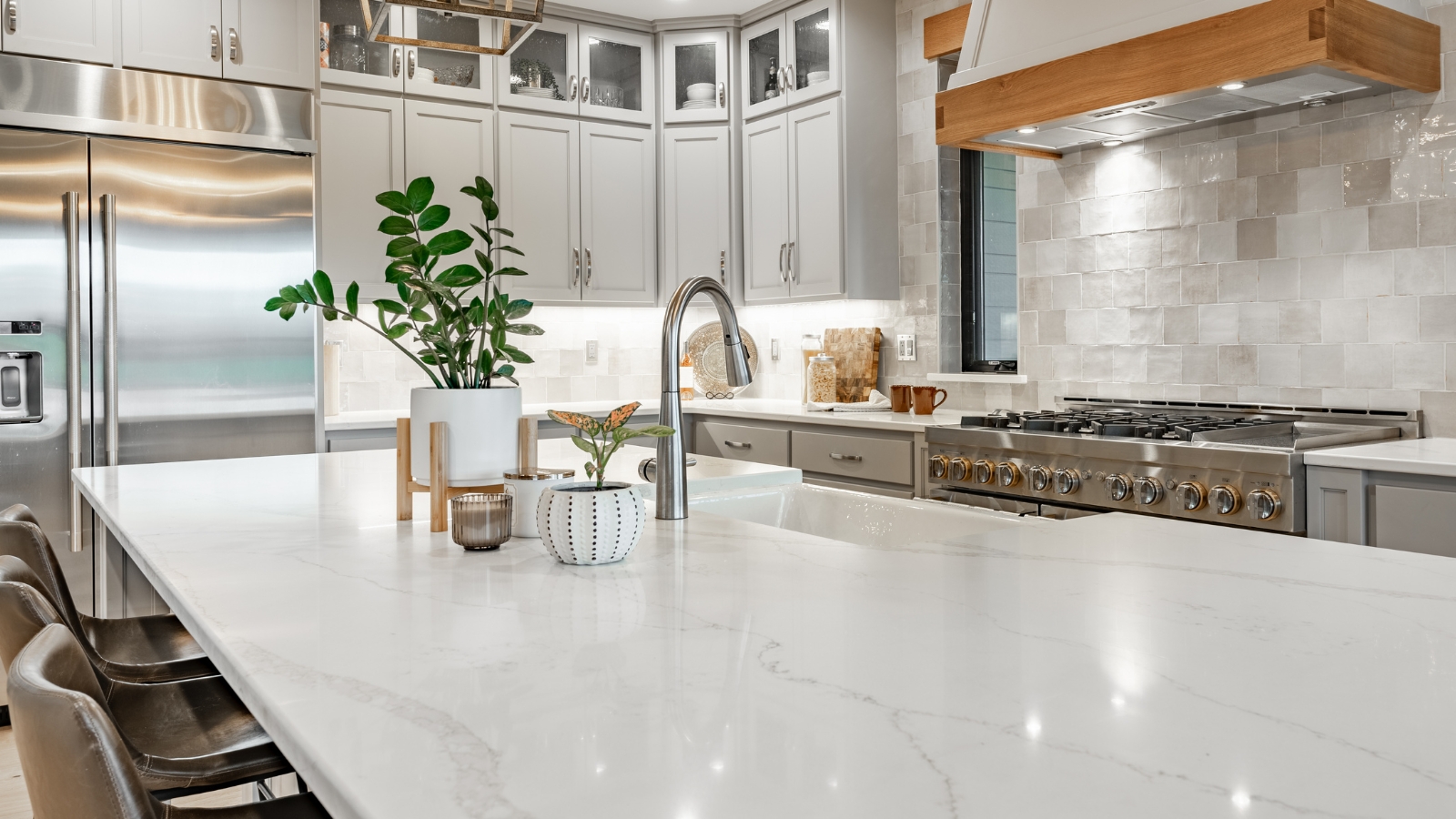
Design expertise in your inbox – from inspiring decorating ideas and beautiful celebrity homes to practical gardening advice and shopping round-ups.
You are now subscribed
Your newsletter sign-up was successful
Want to add more newsletters?

Twice a week
Homes&Gardens
The ultimate interior design resource from the world's leading experts - discover inspiring decorating ideas, color scheming know-how, garden inspiration and shopping expertise.

Once a week
In The Loop from Next In Design
Members of the Next in Design Circle will receive In the Loop, our weekly email filled with trade news, names to know and spotlight moments. Together we’re building a brighter design future.

Twice a week
Cucina
Whether you’re passionate about hosting exquisite dinners, experimenting with culinary trends, or perfecting your kitchen's design with timeless elegance and innovative functionality, this newsletter is here to inspire
Stone surfaces add elegance and durability to any home, but preserving their timeless beauty requires proper maintenance.
From dusting frequently to avoiding heat, our cleaning experts reveal seven simple steps to ensure your natural stone retains its shine, plus what to never do.
Armed with the ultimate cleaning supplies and our expert advice, your natural stone will retain its wow factor for years to come.
1. Dust frequently
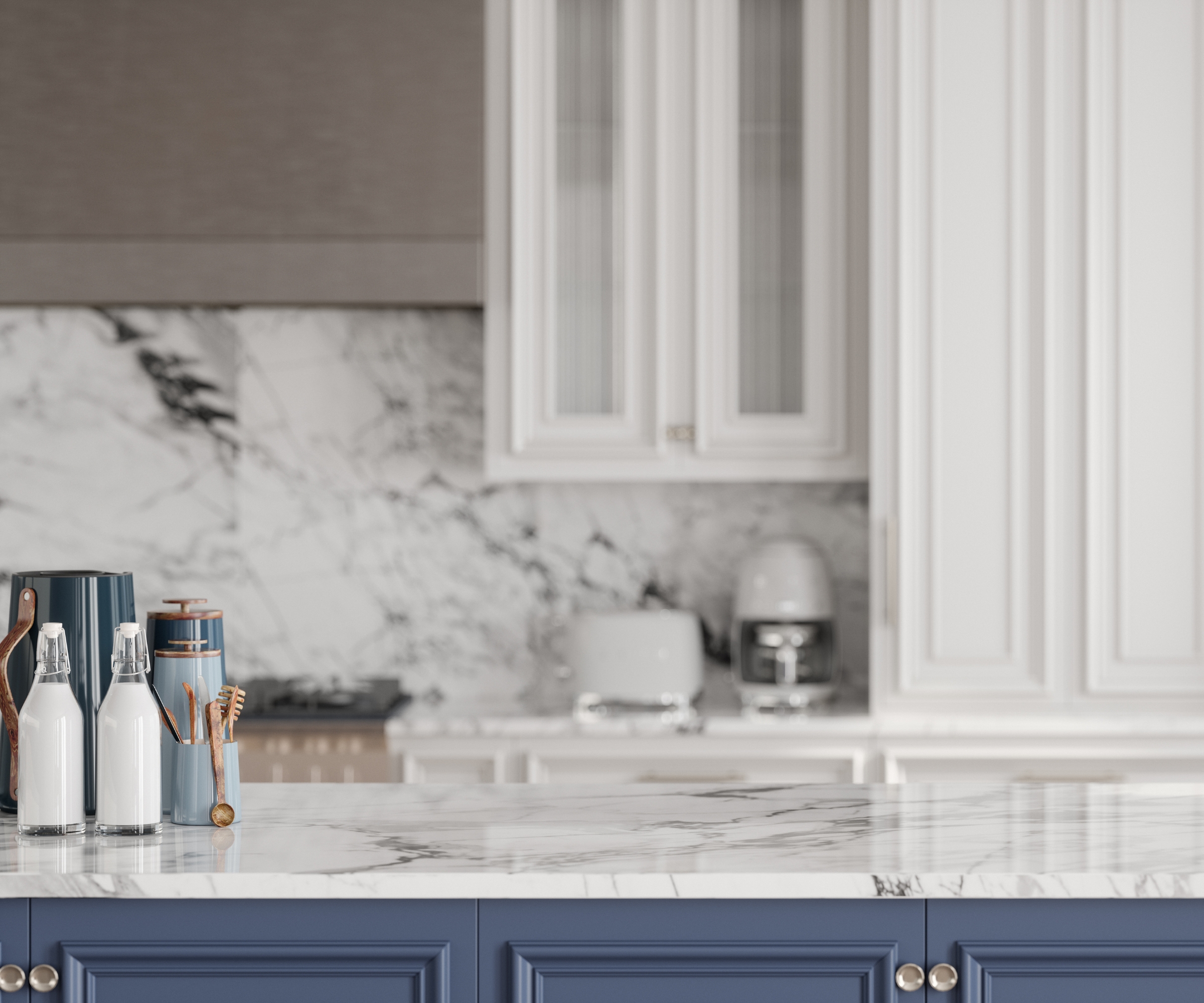
Dust particles can scratch natural stone surfaces over time. Karina Toner, operations manager at Spekless Cleaning, says, 'Dust natural stone surfaces weekly with a dry, soft microfiber cloth. This simple routine removes particles that can become abrasive, scratching the surface if left unchecked.
'Microfiber cloths are gentle and trap dust effectively without scratching, helping keep the surface looking polished. Routine dusting minimizes the need for deeper cleaning, which can wear down the sealant over time.'
Toner recommends Zwipes Microfiber Cleaning Cloths from Amazon, adding, 'These are ideal for natural stone as they’re soft and highly absorbent, leaving the surface streak-free and protected.'
Watch out for these dire dusting mistakes that can actually make your home dirtier.
Design expertise in your inbox – from inspiring decorating ideas and beautiful celebrity homes to practical gardening advice and shopping round-ups.
2. Wipe spills immediately
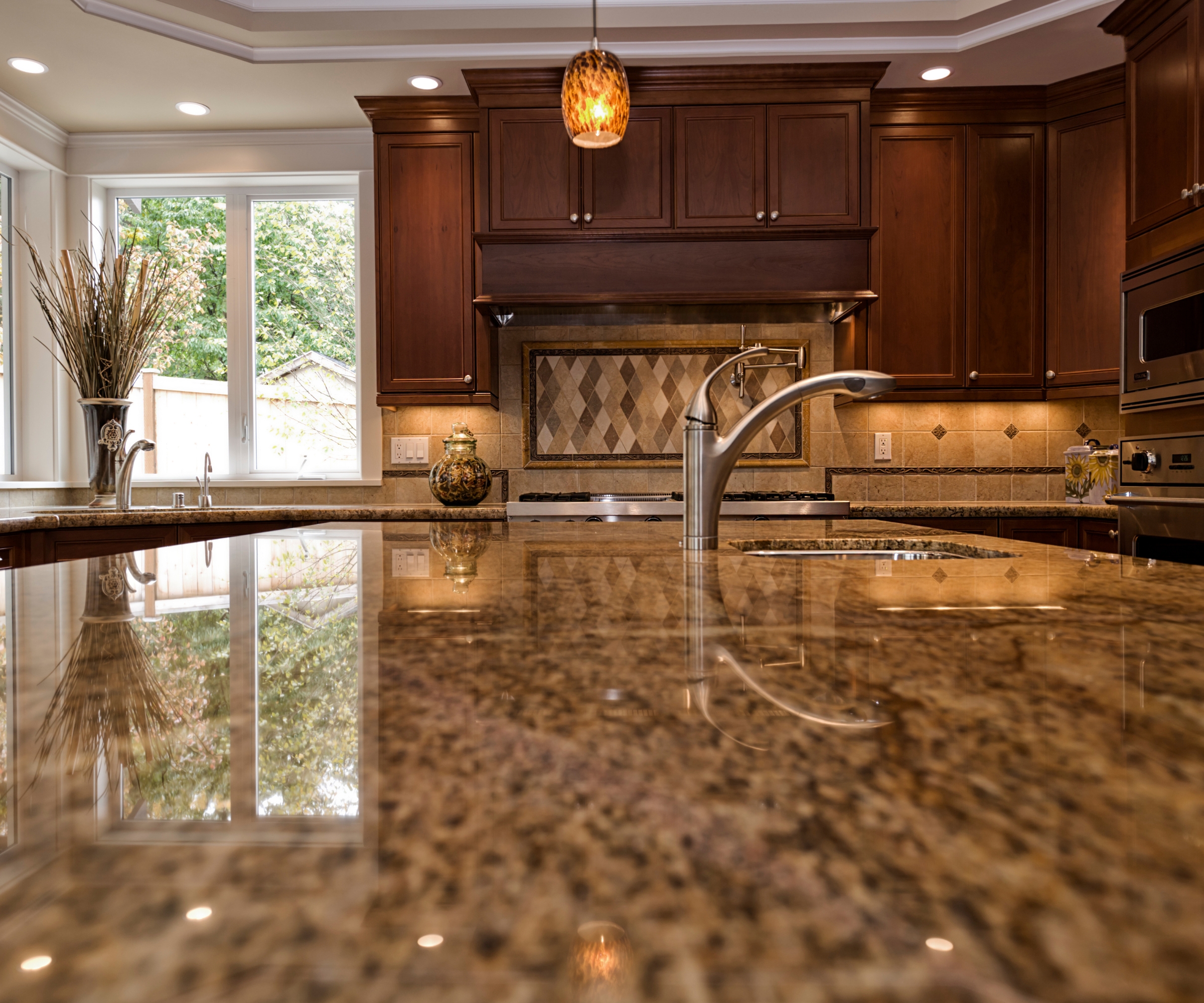
Natural stone is porous and can absorb liquids, leading to staining.
Toner says, 'When it comes to natural stone, it's important to quickly wipe up spills – especially those containing acidic ingredients like wine, juice, or coffee. Use a soft cloth and water to clean up and follow up with a stone cleaner if needed.
'Promptly removing spills prevents the stone from absorbing liquids and staining. This habit is especially important for lighter stones like marble or limestone, which are more susceptible to stains and etching.'
Scott Store Paper Towels from Walmart are an affordable, fast-absorbing option, ensuring stains aren't allowed time to set in. A gentle blotting motion is often most effective for lifting spills without spreading them.
3. Use a pH-neutral cleaner
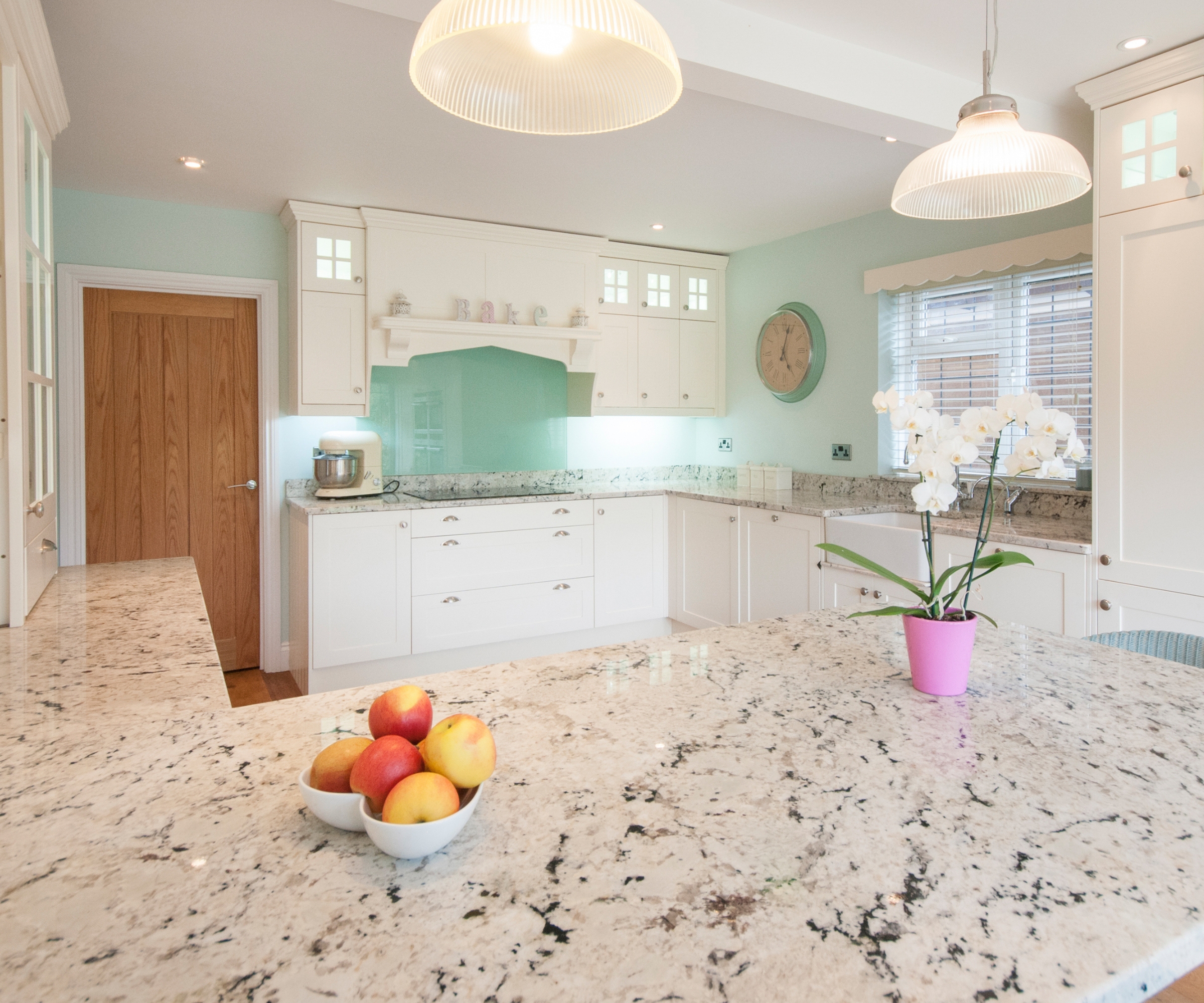
Harsh chemicals can damage stone finishes. Toner explains, 'For natural stone, it's important to avoid using acidic cleaners like vinegar, lemon juice, or any bleach-based product. These can strip away the sealant and weaken the stone’s finish, causing permanent etching.
'Opt instead for pH-neutral cleaners, which are balanced, so they don’t erode the stone's protective seal. Simply spray it on the surface and use a microfiber cloth to wipe it away. This extends the life and beauty of the stone while reducing the likelihood of etching and dullness.'
Though multipurpose cleaners sound great, they are actually the first of five cleaning myths that will damage your countertops.
Steven Ip, owner of Cleanzen Boston Cleaning Services, says, 'Neutral cleaners protect the stone’s finish and preserve its natural look to maintain the stone without discoloration or degradation. Products like Bar Keepers Friend Granite & Stone Cleaner from Amazon are ideal as they clean effectively without compromising the integrity of the stone.'
Always rinse with water to remove residue.
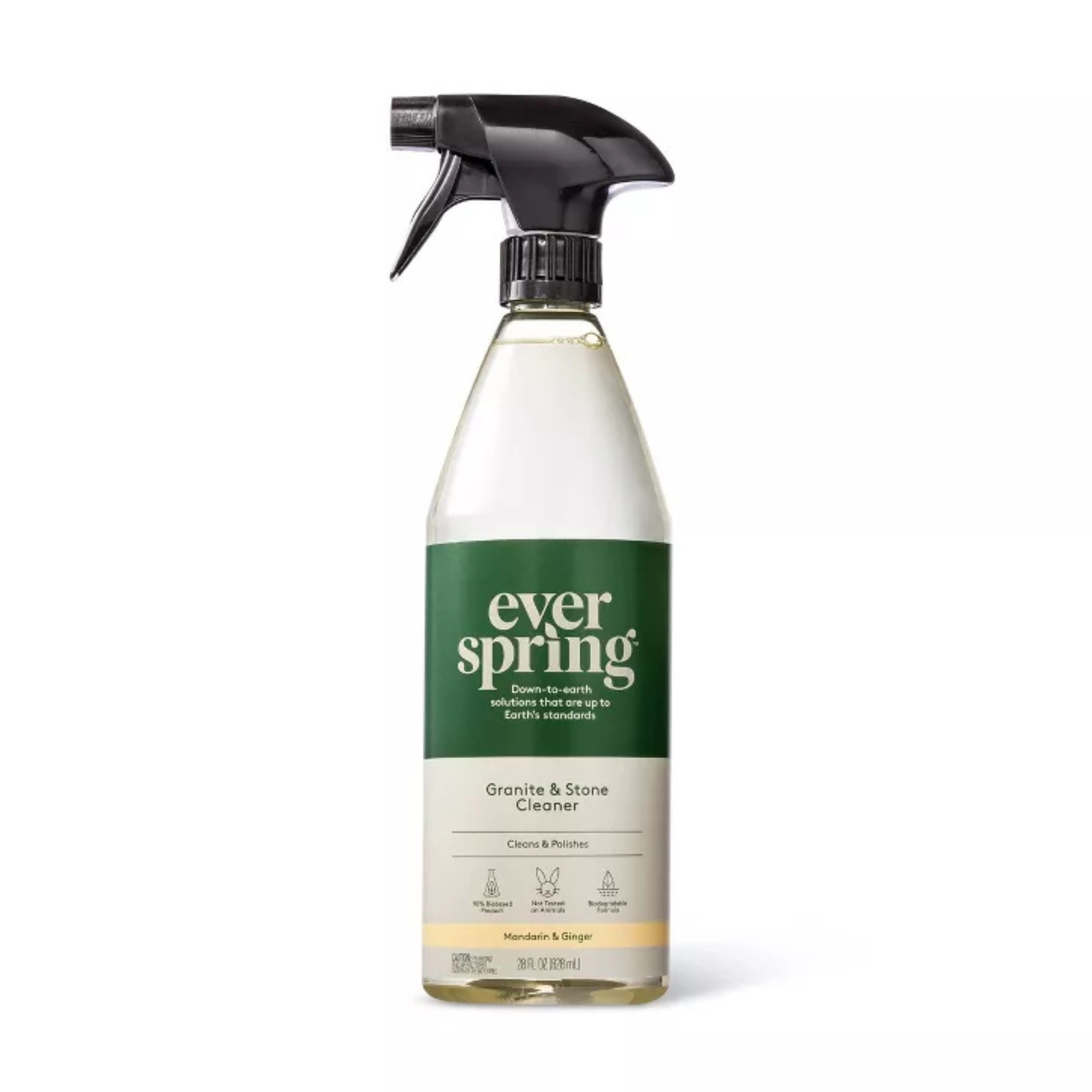
This eco-friendly surface spray cleans and polishes granite and stone without ammonia or harsh fumes. Made without parabens and naturally fragranced with plant extracts and essential oils, this biodegradable formula is non-toxic to humans – plus the packaging is made from 100% post-consumer recycled plastic.
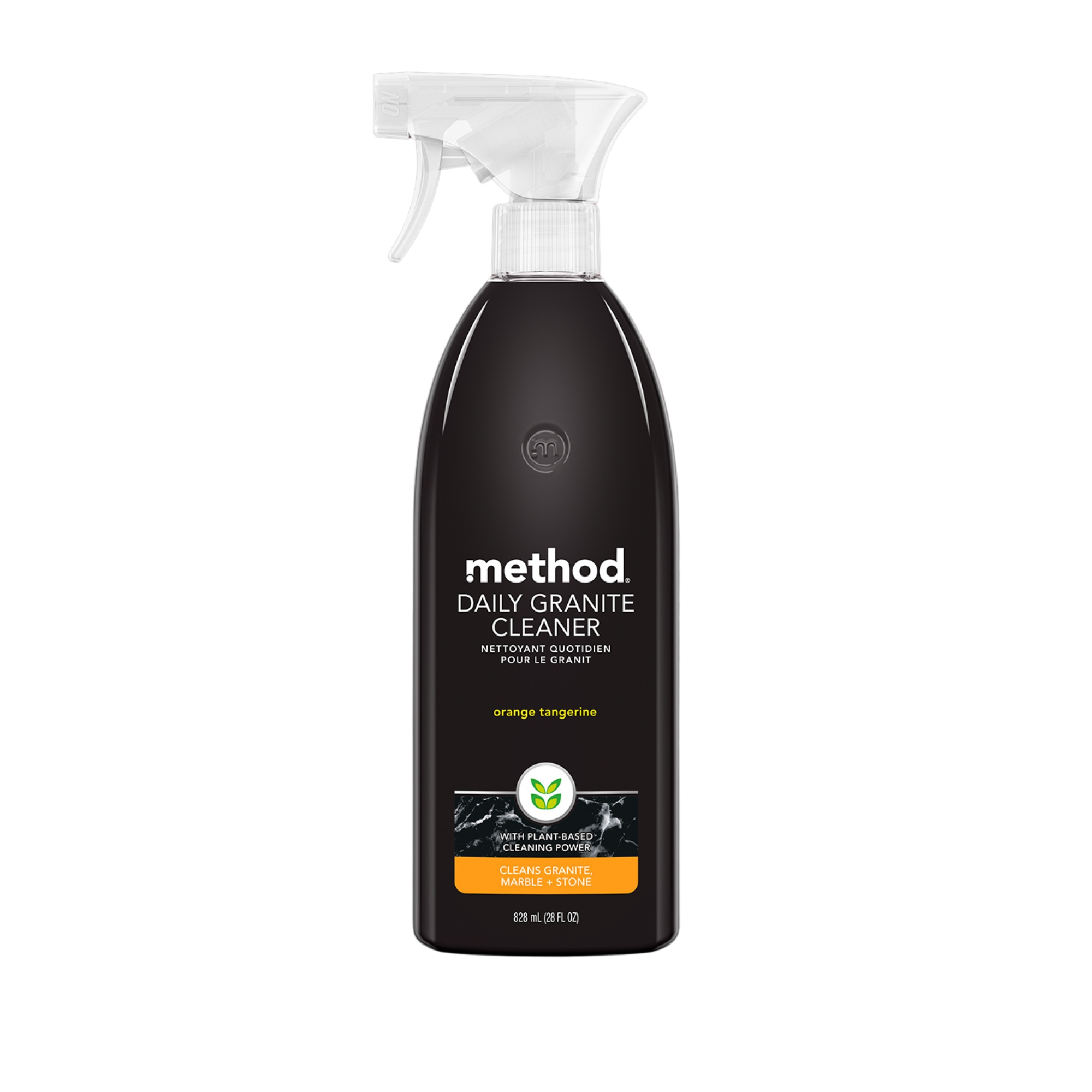
Made with plant-based cleaning agents, this beautifully-fragranced spray is ideal for stone surfaces, leaving a sparkle without streaks or stress. Surface-safe on granite, marble and sealed stone, the product is also cruelty free – tested by people, not on animals. The stylish bottle is also made from recycled plastic.
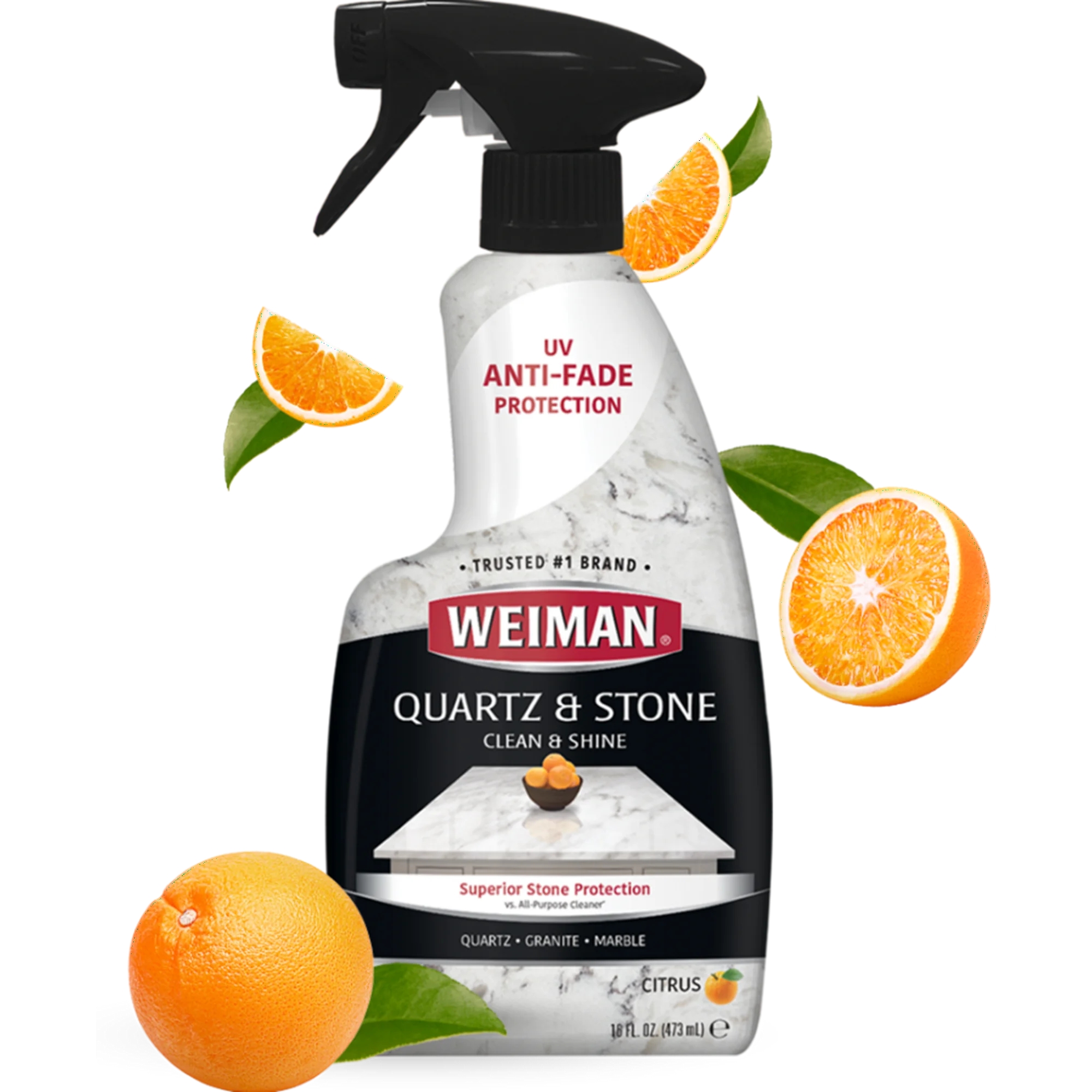
This fresh, citrus-smelling spray's pH-neutral formula safely removes grease, soil, surface stains and watermarks from stone surfaces such as quartz kitchen countertops. It also boasts lasting UV protection, preventing the resins in quartz and other stones from fading or darkening from excessive sunlight exposure.
4. Avoid abrasive scrubbers
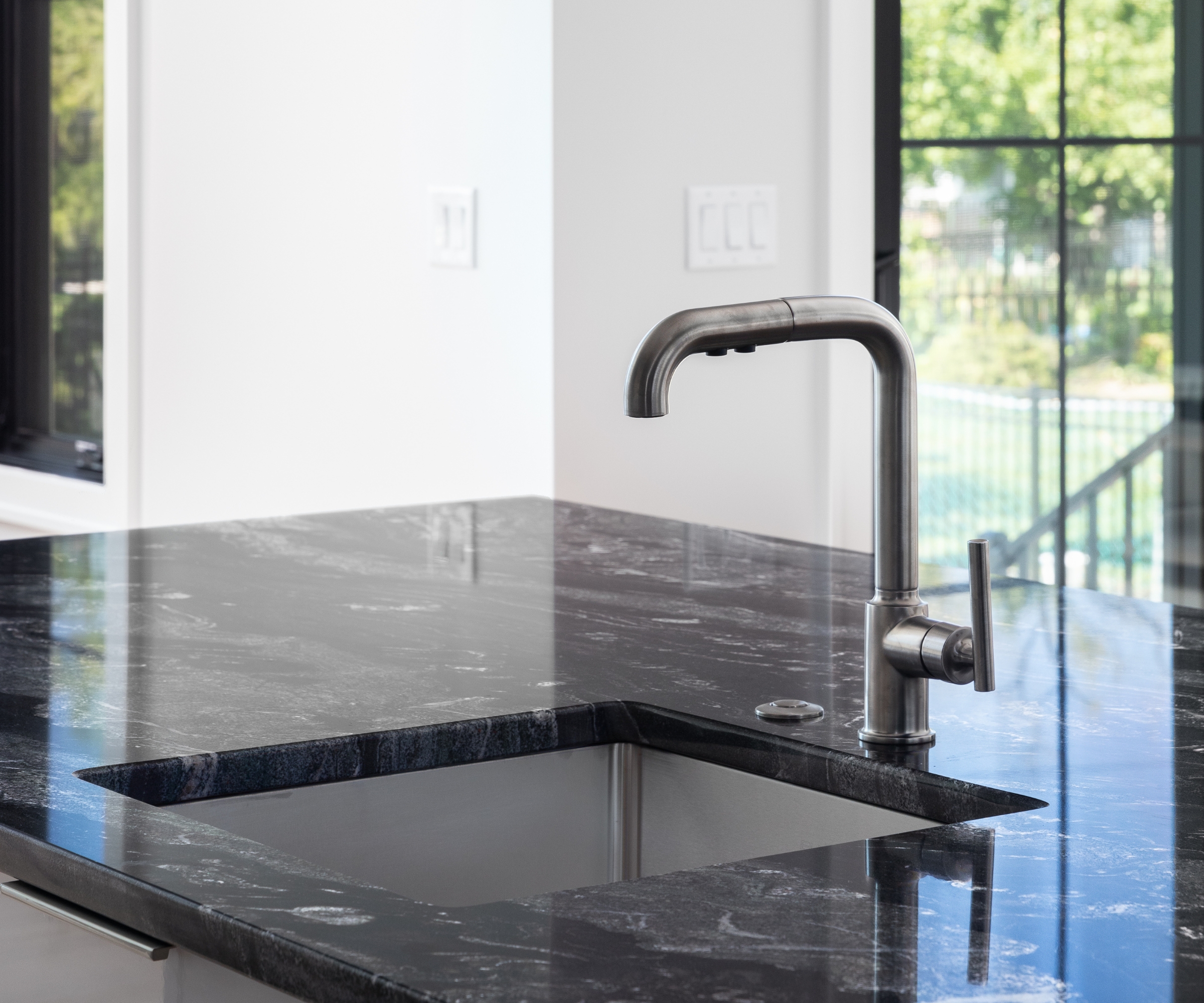
Steel wool and rough sponges can scratch stone surfaces.
Ip says, 'While it may seem tempting to use abrasive scrubbers, steel wool, or harsh brushes to tackle tough spots, these can scratch and dull the surface of natural stone over time. Instead, opt for a soft microfiber cloth or a non-abrasive sponge to clean the surface gently.'
Check out the six steps to keeping granite scratch-free.
5. Use cutting boards

Avoid cutting directly on stone countertops as knives can cause scratches.
Steve Evans, owner of Memphis Maids, says, 'Don’t cut any fruits, meat or poultry directly on your natural stone kitchen countertops. Acidic juices will damage the surface, plus these micro scratches will etch or stain the surface as well.
'Instead, I advise having two cutting boards – one for meat and poultry, and one for everything else. This Farberware Large Cutting Board from Amazon comes in different size options and is dishwasher safe, making keeping it clean a breeze.'
A cutting board protects both your natural stone and your blades. For more, check out how to clean quartzite countertops.
6. Avoid heat
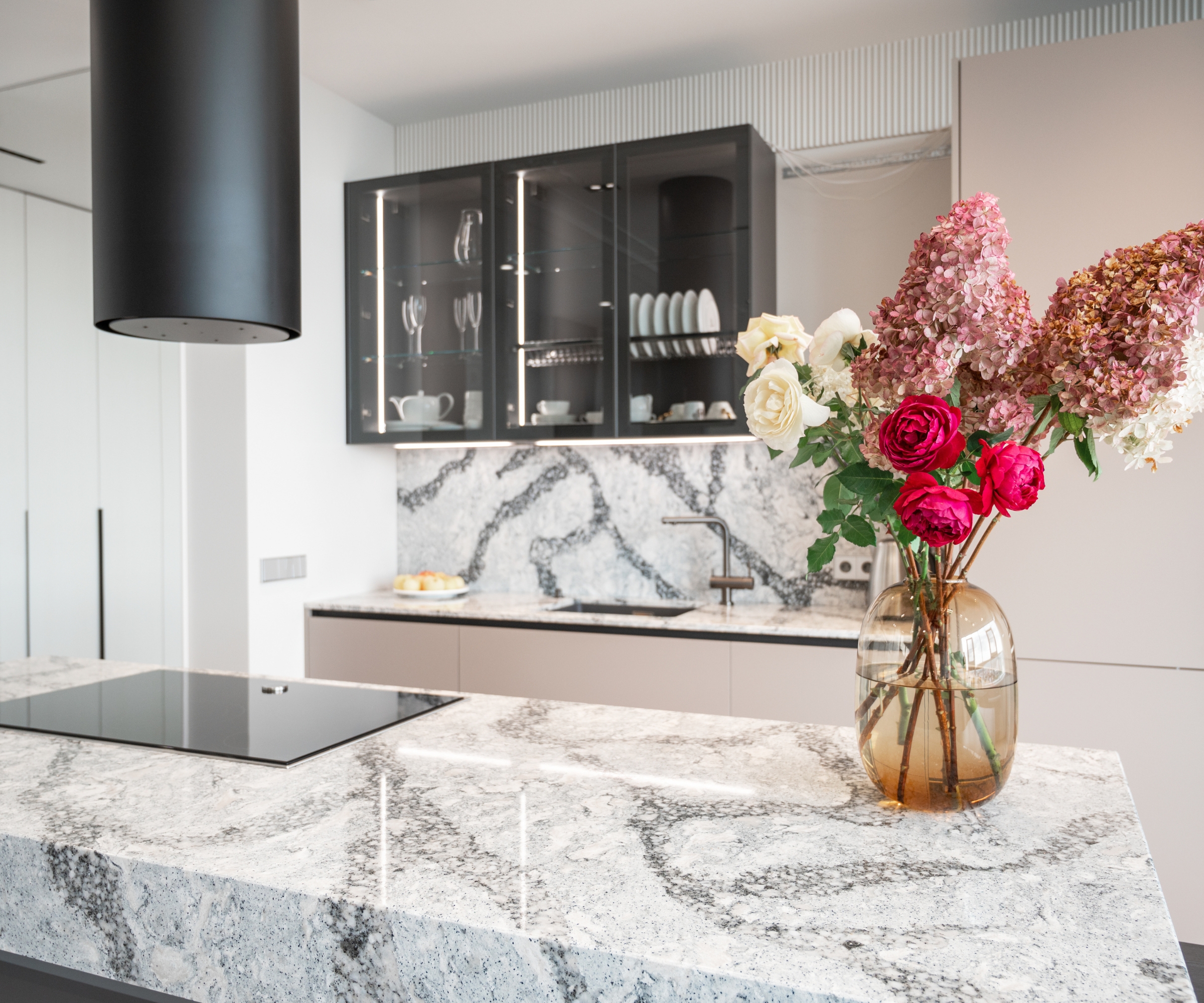
Placing hot pots or pans directly on stone can cause thermal shock and discoloration.
Toner says, 'Heat damage can cause discoloration and even crack certain stone types, so protecting against heat prevents both aesthetic and structural damage to the stone surface. Always use trivets or hot pads under hot cookware, kettles, or plates.'
Silicone or cork trivets work well to protect stone from high temperatures. This Juvale 6-pack of Cock Trivets from Target is ideal for large pots and pans.
7. Reseal regularly

Most stone surfaces require periodic sealing to maintain their resistance to stains and moisture.
'Sealing natural stone surfaces like granite, marble and limestone is a crucial step in protecting them from stains and spills,' says Ip. 'Applying sealers such as Tenax Pectro from Amazon – which is great for black stone – creates an invisible barrier that repels water, oils, and dirt, making it easier to clean and maintain the surface.'
Aim to apply your chosen sealant two or three times a year – check the on-tin instructions for the ideal frequency.
Evans recommends Tenax Proseal from Walmart. He says, 'Anything from tomato juice to toothpaste can etch marble or granite, but a silicone-based sealer will create a stronger barrier between your surface and these agents.'
Alternatively, Toner recommends Aqua Mix Sealer’s Choice Gold, available from Amazon. She adds, 'This is a great, professional-grade, water-based sealant that provides excellent stain protection. Just be careful not to apply the sealant to a dirty surface, as this can trap debris under the seal.'
FAQs
Can I use vinegar to clean stone surfaces?
No, cleaning with vinegar works because it's acidic, so if used on natural stone, can etch or dull stone surfaces over time. Instead, use a pH-neutral cleaner designed for stone to prevent damage. If in doubt, test the cleaner on a small, inconspicuous area first.
How do I remove stains from stone surfaces?
For stains, use a paste of baking soda and water, or a commercial stone stain remover. Apply it to the stain, let it sit for several hours, and then rinse gently. Be patient, as some stains may require multiple treatments.
How can I tell if my stone surfaces need resealing?
To check if your stone surface needs resealing, perform a simple water test. Sprinkle a few drops of water on the surface and observe if it beads up or soaks in. If the water is absorbed within a few minutes, it's time to reseal. Regular testing ensures your stone stays protected from stains and moisture damage.
So there you have it – how to care for natural stone surfaces in your home. By following these simple steps, you can keep your stone surfaces looking pristine for years.
Next, check out the pros and cons of stone drying mats.

With more than a decade of experience writing news, lifestyle, consumer, and human interest articles for a wide range of national and international publications, Andy is a highly-qualified journalist writing features for the national press. From front porch to backyard, attic to basement, Andy has written about every area of the home. He specialises in bringing together the best industry expertise to answer all of your most pressing home and garden questions about seasonal and everyday cleaning, decluttering, organizing and DIY.